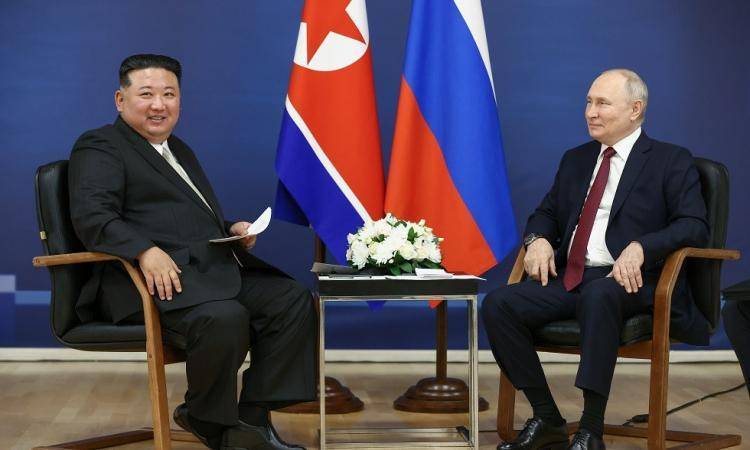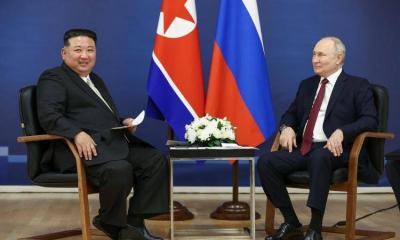"A serious threat to peace and stability in the region." This is how South Korea and the United States described the security agreement between Russian President Vladimir Putin and North Korea. The South Korean Foreign Ministry stated today, Friday, that South Korean Foreign Minister Park Tae-youl and his American counterpart condemned the new treaty between Russia and North Korea. The ministry added that the two sides discussed ways to respond to this treaty and agreed to closely monitor the situation.
Blinken indicated that the U.S. supports South Korea's responses to the treaty, in which Moscow and Pyongyang stated that both countries would provide immediate military assistance if either faced armed aggression. He emphasized that Washington would consider various ways to respond to the threat posed by Russia and North Korea to international peace and stability.
Park asserted that any cooperation to enhance North Korea's military capabilities is a clear violation of United Nations Security Council resolutions.
Why did it upset Washington? Why did this agreement alert certain Western countries, including the U.S., South Korea, and NATO, among others?
Firstly, the issue of Moscow arming Pyongyang contradicts Security Council resolutions and threatens U.S. ally South Korea. The agreement, officially named the "Comprehensive Strategic Partnership Treaty," aimed at "creating a new equitable and just international system and enhancing strategic and tactical cooperation between the two countries," subtly indicating a coalition directed at the U.S. and its allies, according to some observers.
It also included a clause for "activating communication channels without delay if either party faces a direct threat of potential armed aggression," as reported by Reuters. It stipulated "providing military assistance and other support immediately using all available means if either side is at war, in accordance with Article 51 of the United Nations Charter, which grants individual or collective rights to nations for self-defense against any armed attack."
Furthermore, it addressed "preparing necessary procedures for joint actions to enhance defensive capabilities" and "working together to confront challenges and threats in strategically important areas, including food and energy security, information and communication technology, and supply chains." Additionally, it intended to expand cooperation in trade, economy, investment, science, and technology, as well as develop joint research in science and technology, including space, biology, peaceful uses of nuclear energy, artificial intelligence, and information technology.
Undoubtedly, all these terms related to cooperation in sensitive areas like nuclear and artificial intelligence represent challenges for the West, which has become adversarial towards Russia since the onset of its invasion of Ukraine, and of course for North Korea, which is considered internationally isolated. Moreover, some analysts fear that this step by Moscow may be part of forming an opposing alliance that includes North Korea, China, and Iran.




